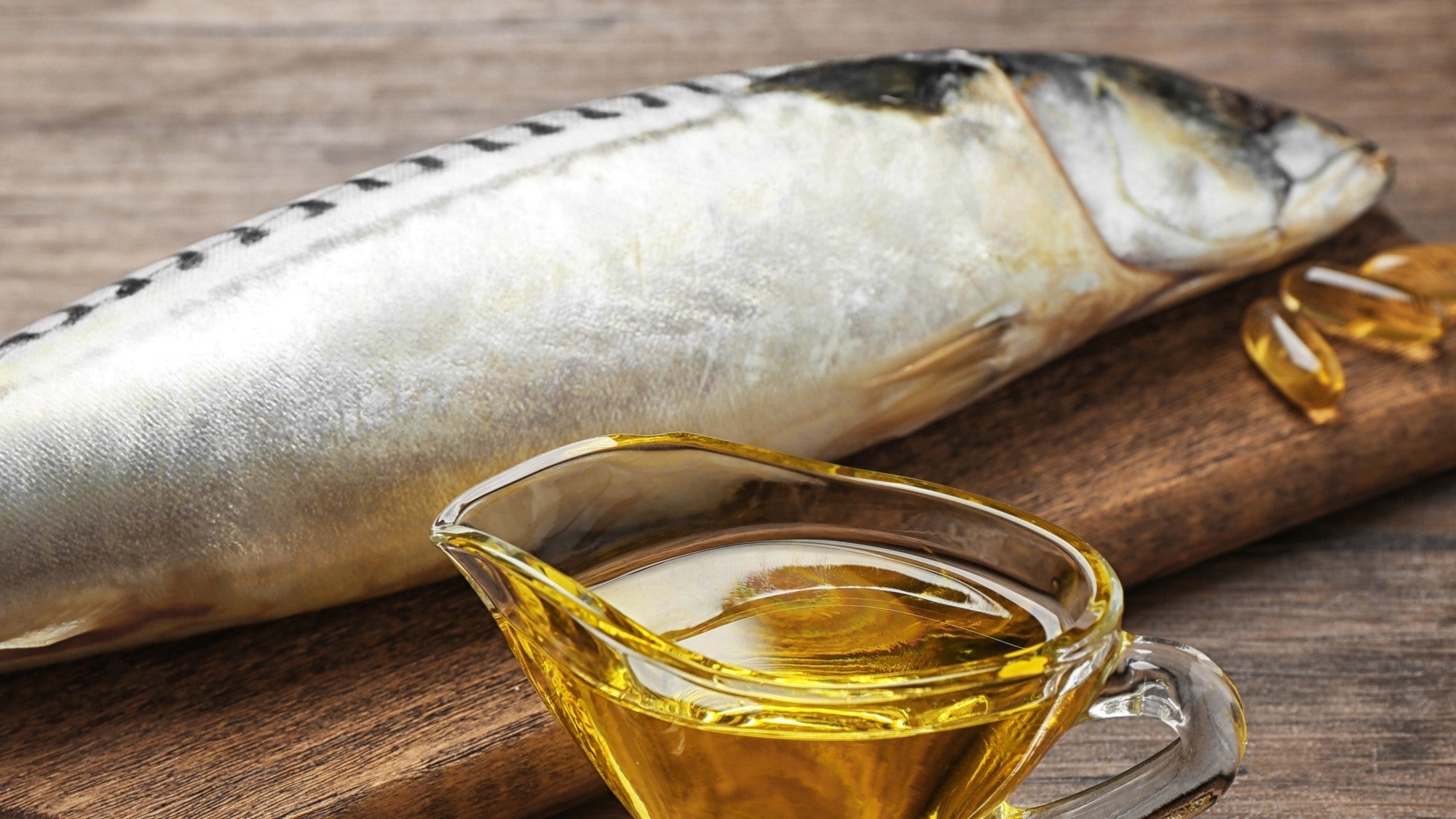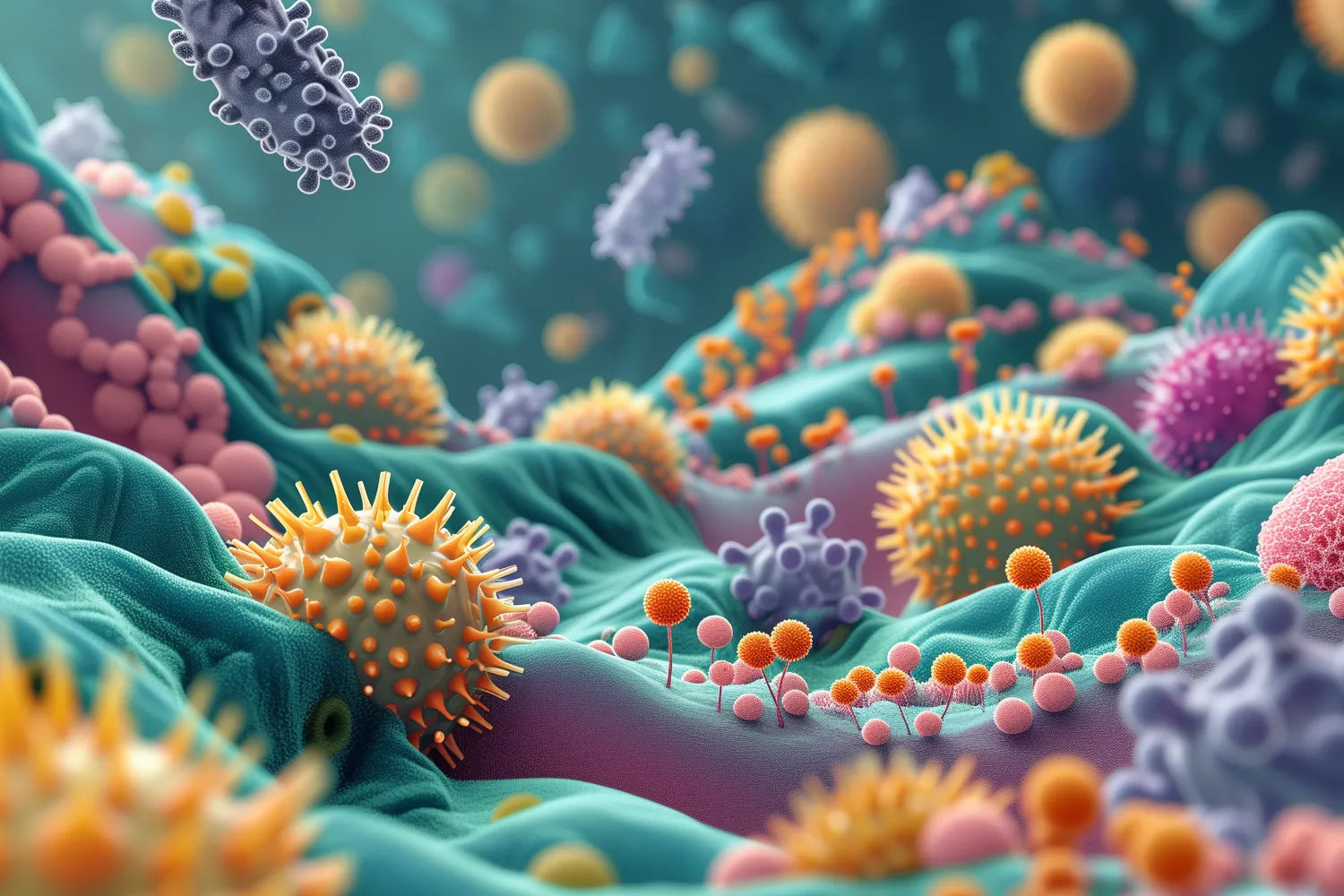
Dr. Eric Venn-Watson’s Highlights
-
- Cod liver oil is a beneficial supplement derived from the livers of a particular type of fish.
- Taking cod liver oil can help you meet your daily recommended allowance of omega-3 fatty acids.
Medically reviewed by Eric Venn-Watson, MD
Fish oil supplements have risen in popularity, but with so many different kinds available on the supplement aisle, it can be difficult to determine which ones you actually need.
One of the most popular fish oil supplements, cod liver oil, practically jumps off the supplement shelf with its wide array of purported benefits.
If you’re considering a fish oil supplement, cod liver oil might be for you. We’ll cover everything you need to know about what it is, where it comes from, how it can benefit your health, and the side effects you might experience while taking it.
We’ll also talk about another healthy fat that might just be added to or even replace your choice of cod liver oil.
What is Cod Liver Oil?
The name doesn’t sound appealing, but it’s a pretty accurate description of the source of this supplement. Cod liver oil is taken from the livers of cod fish; mostly Atlantic and Pacific cod varieties.
Cod liver oil supplements are different from fish oil supplements. Fish oil is generally extracted from the tissues of certain fish (not the livers). Fish oil supplements are also made of a blend of fish oils. Cod liver oil may be included in that blend, but generally it will be a blend of fish oils from other fish like herring, tuna, and even anchovies.
To make cod liver oil usable, the livers of cod fish are ground into a liquid. The oil naturally rises to the top, is extracted from the solution, and then purified for use. The oil is then added to supplement capsules, which is what you’ll find at your local drug store.
Cod Liver Oil Benefits
We have to admit, taking fish liver oil doesn’t sound like something beneficial, but there are numerous studies that point to the health benefits of cod liver oil.
Cod fish eat a diet rich in phytoplankton, which contains omega-3 fatty acids. This makes cod liver oil a viable source of omega-3 fatty acids for our own bodies. Omega-3 fatty acids are essential fatty acids.
To be an essential fatty acid, your body must need it to maintain healthy function, but not be able to make it on its own. This means, we have to get it from another source. Aside from being a source of essential omega-3, cod liver oil offers other health benefits.
1. Rich in Vitamins A & D
Because cod liver oil is extracted from the livers of cod fish, it is naturally high in vitamins A & D. The liver of the fish contains large amounts of these vitamins, which are passed into the liver oil.
Vitamins A & D are beneficial for the body to help promote bone health, eye function, and calcium absorption. Taking a cod liver oil supplement can help you increase your intake of vitamins A & D, which can help you support your body’s wellness.
Vitamins A & D are also powerful antioxidants. Your body uses antioxidants to prevent free radical damage.
2. Helps Suppress Certain Proteins
Inflammation and discomfort happens when certain proteins in your body are activated as part of your body’s natural immune response. Although inflammation is a good and necessary part of your body’s immune response, it can sometimes become chronic.
Chronic inflammation refers to a condition wherein your body is continually triggered by a low-level irritant, causing irritation and inflammation to be constantly present. Chronic inflammation can lead to conditions like heart disease and insulin resistance.
A chronic inflammatory response is triggered by two particular proteins in your body, TNF-α, IL-1 and IL-6. Cod liver oil helps suppress these proteins, which can help soothe irritation in your body and alleviate accompanying symptoms.
3. Supports Bone Health
If you’ve gotten the news from your doctor that you’ve got osteoporosis, or that your bones are becoming weak (a condition known as osteopenia), you’re probably looking for ways to increase your bone health.
Cod liver oil is an all-natural way to support bone health and encourage stronger bones, especially in menopausal women. The vitamin D content of cod liver oil helps your body better absorb calcium, which is crucial for maintaining stronger bones.
4. Helps to Lubricate Your Joints
As you age, the cushions between your joints wear down. Whether you have age-related arthritis or rheumatoid arthritis (an autoimmune condition where the body attacks the cartilage between the bones), you may find yourself looking for ways to support your joints so you can continue to move pain free.
Cod liver oil is a great way to support your joint health, because of its high omega-3 fatty acid content. Omega-3 helps to soothe aching joints, promote fluidity in movement, and calm irritation. This can make it easier for you to find relief over time.
5. Promotes Heart Health
We know it’s important to keep our hearts healthy. Beyond regular exercise and a nutritious, balanced diet, we can look to supplements to help support a healthier, better functioning heart.
Cod liver oil can help support your heart health by helping you keep your cholesterol numbers in healthy range. Having high cholesterol can place you at a much higher risk for developing heart disease and stroke.
6. Supports Eye Health
Loss of vision can be a devastating and debilitating occurrence. While some vision loss is normal as we age, supporting our eye health can help us see more clearly and for a longer period of time.
The main causes of vision loss as you age are macular degeneration and glaucoma. The omega-3 fatty acid and vitamin A content in cod liver oil can help support your eye health and decrease chronic irritation which may lead to these two conditions.
Cod Liver Oil Nutrition
As important and beneficial as cod liver oil can be for you, it’s important we look at cod liver oil supplements from a nutritional standpoint, to see how these supplements stack up in terms of recommended daily allowances for macronutrients.
One teaspoon of cod liver oil, for instance, contains:
- 4.5 grams of fat
- 0 carbohydrates
- 0 protein
- 90% of your daily recommended allowance of vitamin A; and
- 112% of your daily recommended allowance of vitamin D.
The amount of fat contained in a teaspoon of cod liver oil is minimal, but there’s even less in a cod liver oil supplement.
Side Effects
Cod liver oil is generally well tolerated, but there are some side effects you can expect.
For one, you’ll almost always experience “fish breath” with cod liver oil and any fish oil supplement. You can reduce this effect by taking your supplement with food, but you may still notice that the supplements give you heartburn, cause fishy-smelling and tasting burps, and in some cases, produce nausea.
While it is uncommon, some users may experience loose stools while taking cod liver oil supplements. This side effect usually disappears after a few days of use.
Elevate your cells. Elevate your self.
A Better Fatty Acid for Healthy Aging
Even though cod liver oil is beneficial, you might be surprised to learn that omega-3 fatty acids aren’t the only essential fatty acids you can take in supplement form. In fact, there’s an incredibly beneficial fatty acid that may give you many of the same benefits as cod liver oil, as well as supporting healthy aging on the cellular level.*
Pentadecanoic acid, also called C15:0 (pronounced see-fifteen) is an odd-chain, saturated fatty acid that research shows may be the first essential fatty acid to have been discovered in 90 years.† C15:0 is a sturdy fatty acid, present in dairy fat and some types of fish and plants, that helps strengthen and protect your cells, which gives them a fighting chance to age more healthfully.*†
When your cells age more healthfully, your body ages healthfully. It’s a win/win.
C15:0 helps keep your cells functioning properly by:*
- Strengthening cell membranes. Cells begin to break down as we age. C15:0 helps strengthen cell walls, keeping them protected from external stressors.
- Helping mitochondrial function. As we age, our cell’s powerhouses, the mitochondria, begin to slow down. C15:0 helps your mitochondria function properly.
- Supporting healthy metabolism. Your metabolism gets sluggish the older you get, but taking C15:0 can help make sure your metabolism doesn’t stay in the right hand lane.
- Balancing immunity. When our bodies age, our immunity can become unbalanced. C15:0 helps bring immunity back into homeostasis.
- Promotes heart and liver health. Two major organs benefiting from one tiny supplement? It’s true! Research supports that C15:0 can help support both heart and liver health, which can help keep you protected.
Because C15:0 is only found in small quantities in whole fat dairy products and some fish, it’s nearly impossible to get the amount your body needs in your diet alone. Thankfully, fatty15 is a once daily C15:0 supplement you can take to get the cell healthy dose of this fatty acid you need.
Fatty15 can be the best way to take care of your cells, fish-breath free.
Get started with your 30-day trial kit of fatty15 here.
Sources:
Vitamin D and Intestinal Calcium Absorption | NCBI
Omega-3 Fatty Acids EPA and DHA: Health Benefits Throughout Life | Oxford Academic

Eric Venn-Watson M.D.
CEO, Co-Founder
Senior Scientist, Co-Founder
Eric is a physician, U.S. Navy veteran, and Co-founder and COO of Seraphina Therapeutics. Eric served over 25 years as a Navy and Marine Corps physician, working with the special forces community to improve their health and fitness. Seraphina Therapeutics is a health and wellness company dedicated to advancing global health through the discovery of essential fatty acids and micronutrient therapeutics.
You May Also Like...
10 Foods Good for Your Liver: The Ultimate Guide
Your liver does a lot for you. If it had a voice of its own, it might ask you to eat more veggies and cut back on your Old Fashioneds. Unfortunately, the liver doesn’t receive a lot of attention until...
How To Improve Your Gut Microbiome: 6 Tips
Interested in how to improve your gut microbiome? We’ve got six tips to help your gut thrive and improve your overall digestion.


